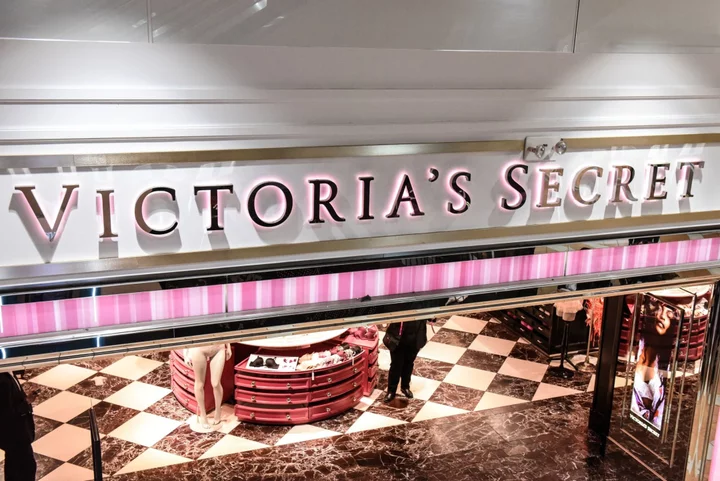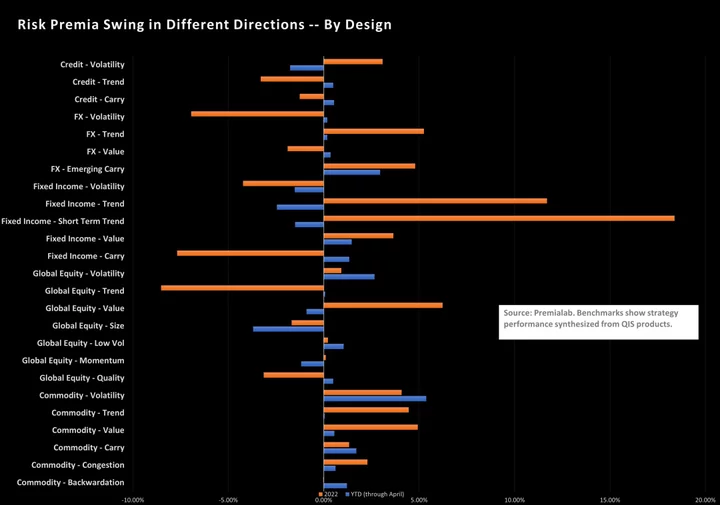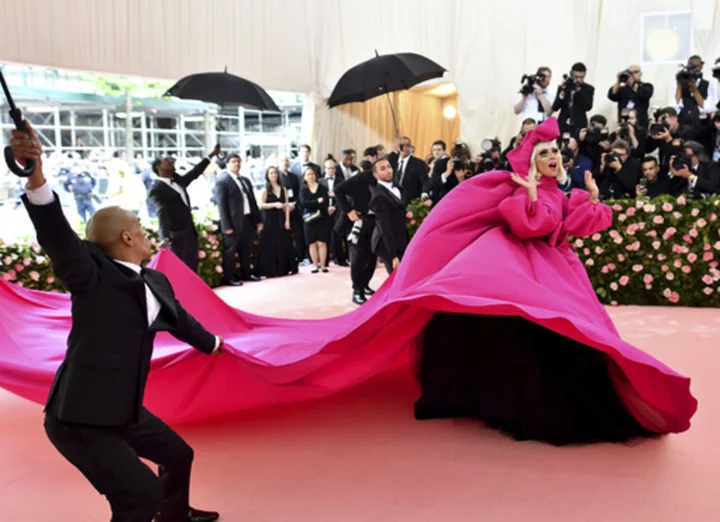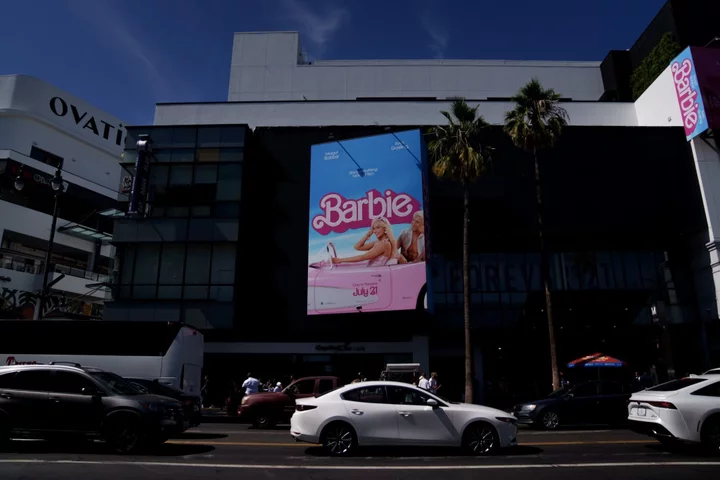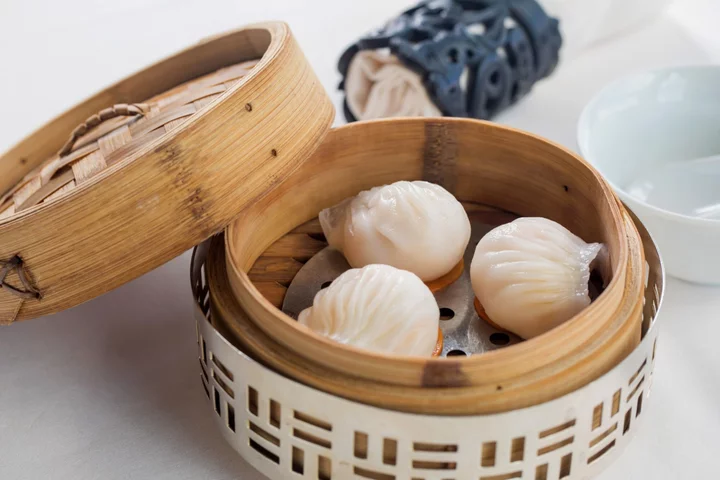Victoria’s Secret & Co. has been seeking penance with shoppers after a backlash to its sexy imagery, with an oft-changing cast of executives pledging to reimagine the retailer’s merchandise and marketing. So far, it has little to show for its efforts.
The business has lost about $1.8 billion in sales since 2018 and revenue for its last full fiscal year fell 6.5%, with net income down nearly half. Shares reached an all-time low in September, down 78% from 2021.
Amy Hauk, the leader who was named head of the Victoria’s Secret brand in 2022 and touted ambitious plans to rebuild its product offerings, announced her departure after six months. Her exit added to a sense of instability at a company that former executives say has relied on half-measures, instead of a total overhaul, to try to regain relevance.
Now, Victoria’s Secret is trying another tack to dig out of its deep sales hole: Revamping the televised fashion show that was a marketing marvel in its 2000s heyday.
The Victoria’s Secret World Tour, a feature-length film that is slated to air Tuesday on Amazon.com Inc.’s Prime Video streaming service, is a bid to recapture some of the retailer’s Angel wings-era luster while incorporating more diverse models and designers.
It also marks the return of an event the company abandoned only four years ago.
“We think Victoria’s Secret has a partially formed view of what it does not want to be, but it does not yet have anywhere near a full view of what it wants to become,” Neil Saunders, managing director of GlobalData Plc, said in a note to clients on Aug. 30. “As such, it is stuck in some kind of blurry netherworld.”
Victoria’s Secret has moved on from some of the key architects of its toxic image. In 2021, it parted ways with Les Wexner, the brand’s longtime maestro. The now-86-year-old billionaire stepped aside and divested his stake after coming under scrutiny for his past relationship with the late registered sex offender Jeffrey Epstein. Ed Razek, a close Wexner confidant who oversaw the brand’s marketing, has also left.
“When Victoria’s Secret & Co. became a stand-alone company in August 2021, we set out to regain the trust of our customers, associates and partners with a new leadership team guided by our majority-women board of directors,” a spokesperson for Victoria’s Secret said in a statement. “We recognize our transformation is a journey and will take time but we are proud of our progress.”
Victoria’s Secret is still the dominant lingerie brand in the US, but the gap has shrunk as upstarts took advantage of its weakness. Sales at American Eagle Outfitters Inc.’s Aerie brand have grown 88% since the pandemic began, hitting $1.5 billion last year. Kim Kardashian’s Skims label is on pace to hit nearly $900 million in annual sales, according to a person familiar with the matter, and executives are planning to open physical stores. Both brands have been successful in prioritizing neutral colors and product fit over the colorful lace and glitter that made Victoria’s Secret famous.
“We got it wrong,” Victoria’s Secret & Co. Chief Executive Officer Martin Waters told investors in a 2021 presentation. “We lost relevance with the modern woman. And she told us very clearly to change our focus from how people look to how people feel.”
Changing focus would prove more difficult than expected. Victoria’s Secret stores still look essentially the same as they did in the Wexner era, including black tile floors and chandelier lighting. One notable change — thanks to advocacy from employees — is the addition of mannequins in varying sizes.
In 2021, the company trumpeted the arrival of the VS Collective, a replacement for the longtime Angels marketing program. The new group of spokespeople included Priyanka Chopra Jonas, Bella Hadid and Hailey Bieber, who the company said would “collaborate with us to create revolutionary product collections.” So far, it has led to a single merchandise line with Naomi Osaka.
Victoria’s Secret tried to court a wider array of shoppers with acquisitions and also the 2022 launch of tween-focused brand Happy Nation, which offered products that were intended to be gender-neutral and size-inclusive. A yellow banner on the website read “a judgment-free community.” Executives thought Happy Nation would generate tens of millions of dollars in revenue, according to an employee who worked on the project, but the brand was quietly folded into Victoria’s Secret’s Pink label.
A spokesperson for Victoria’s Secret said that Happy Nation remains in a testing phase, and management has decided to see how it would perform as a “sub-brand” under Pink as a starter label for bras and underwear.
Happy Nation debuted not long before Hauk, the longtime head of the college-student-oriented Pink brand, was tapped to run the flagship Victoria’s Secret chain.
Six former senior Victoria’s Secret executives, who spoke to Bloomberg News on condition of anonymity because the matters are private, described Hauk as a leader who spearheaded efforts to transition toward marketing that included a more realistic depiction of women and girls. Last October, her team launched “Undefinable,” an advertising initiative that featured models of various ages, gender identities, sizes and races.
The former executives and industry observers say Hauk’s tenure fits a pattern at Victoria’s Secret, where a woman brand head has reported to a man who actually held the power. Sharen Jester Turney headed the label under Wexner for a decade before resigning suddenly in 2016. Jan Singer took over briefly, also under Wexner. One former executive described Victoria’s Secret as a brand built and developed by men, carried and supported on the backs of women.
Hauk reported to Waters, who is a veteran of the Wexner era. While Waters is known to be supportive of diversity and inclusion efforts, former executives say he espouses Wexner’s embrace of brand nostalgia.
The revamp of the fashion show is the just the latest example of how much Victoria’s Secret clings to a past that it is ostensibly trying to leave behind.
In August, it launched the Icon by Victoria’s Secret collection, an assortment of lacy push-up bras and skimpy underwear modeled by former Angels including Candice Swanepoel and Gisele Bündchen. The Icon debut comes at a time when shoppers are seeking products that are unstructured and comfortable, rather than push-up bras with wires, said Morgan Stanley analyst Alex Straton.
Now comes the World Tour film. Attracting viewers won’t be an easy feat. The extravaganza was a ratings juggernaut at its peak, drawing 12.4 million viewers in 2001, according to Nielsen. The 2018 version drew a mere 3.3 million, a record low.
World Tour is not a live runway show, but rather spotlights collections from artists in Bogotá, London, Tokyo, and Lagos, Nigeria, as well as from Victoria’s Secret. Some of the designs won’t be commercially available, but customers will be able to purchase versions of some pieces shown in the movie.
The company sought earlier this month to build buzz for it by convening celebrities and influencers in New York City for a preview of the film.
The evening highlighted the balancing act the retailer is trying to pull off. While the movie makes an obvious effort to feature models and designers of varying sizes, gender identities and races, befitting its more inclusive agenda, the pink carpet and presence of models who’ve worn the angel wings, including Taylor Hill, Gigi Hadid, Naomi Campbell and Swanepoel, made it clear that the company isn’t turning away from its roots.
“Brand turnarounds don’t happen overnight,” Straton said. “Abercrombie took a decade to turn around — Victoria’s Secret is at that 10-year mark, too. Makes you wonder, are they at a turning point?”

